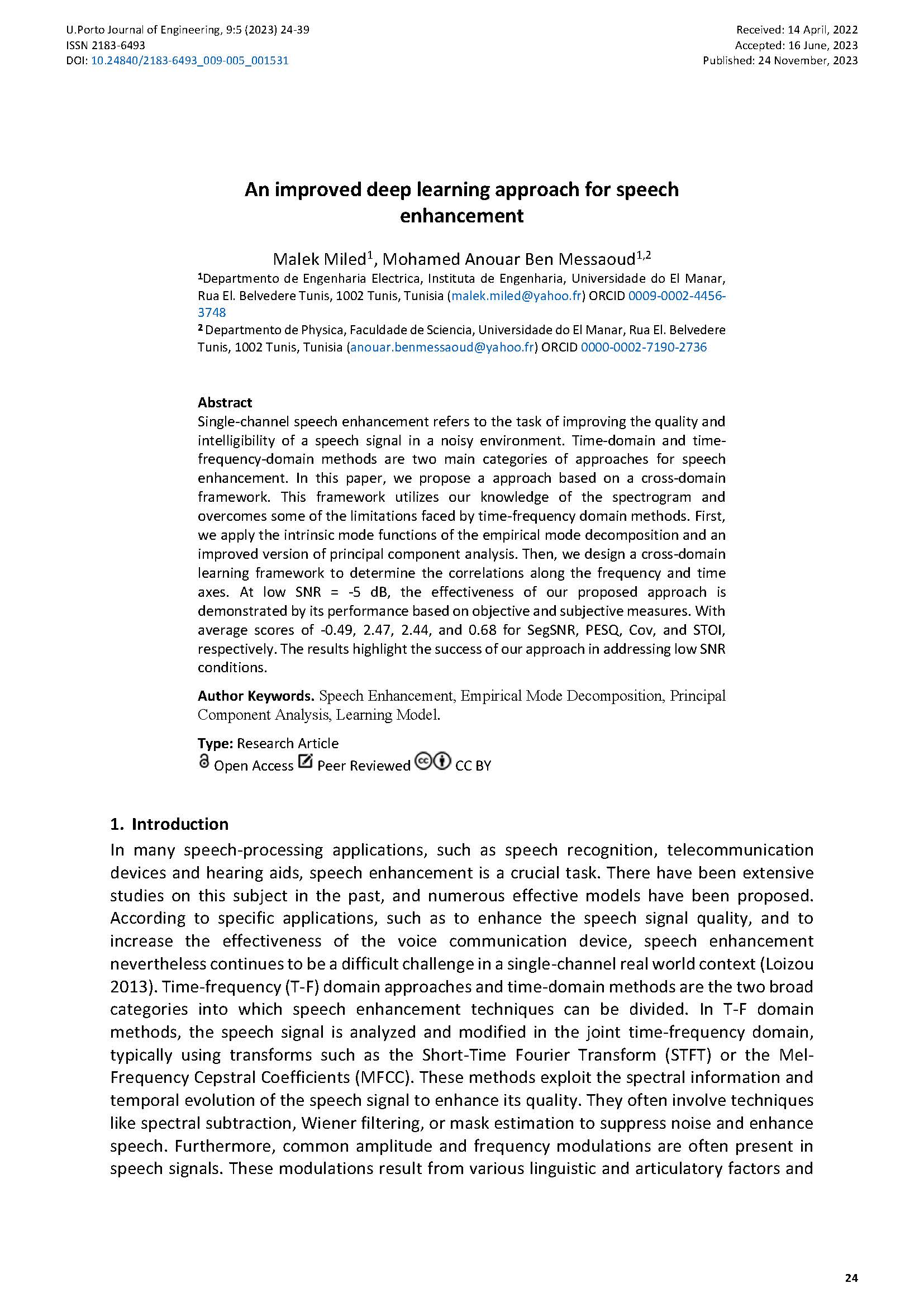An improved deep learning approach for speech enhancement
Main Article Content
Abstract
Single-channel speech enhancement refers to the task of improving the quality and intelligibility of a speech signal in a noisy environment. Time-domain and time-frequency-domain methods are two main categories of approaches for speech enhancement. In this paper, we propose a approach based on a cross-domain framework. This framework utilizes our knowledge of the spectrogram and overcomes some of the limitations faced by time-frequency domain methods. First, we apply the intrinsic mode functions of the empirical mode decomposition and an improved version of principal component analysis. Then, we design a cross-domain learning framework to determine the correlations along the frequency and time axes. At low SNR = -5 dB, the effectiveness of our proposed approach is demonstrated by its performance based on objective and subjective measures. With average scores of -0.49, 2.47, 2.44, and 0.68 for SegSNR, PESQ, Cov, and STOI, respectively. The results highlight the success of our approach in addressing low SNR conditions.
Downloads
Article Details

This work is licensed under a Creative Commons Attribution 4.0 International License.
Authors who publish with this journal agree to the following terms:
- Authors retain copyright and grant the journal right of first publication with the work simultaneously licensed under a Creative Commons Attribution License that allows others to share the work with an acknowledgement of the work's authorship and initial publication in this journal.
- Authors grant the journal the rights to provide the article in all forms and media so the article can be used on the latest technology even after publication and ensure its long-term preservation.
- Authors are able to enter into separate, additional contractual arrangements for the non-exclusive distribution of the journal's published version of the work (e.g., post it to an institutional repository or publish it in a book), with an acknowledgement of its initial publication in this journal.
- Authors are permitted and encouraged to post their work online (e.g., in institutional repositories or on their website) prior to and during the submission process, as it can lead to productive exchanges, as well as earlier and greater citation of published work (See The Effect of Open Access).

